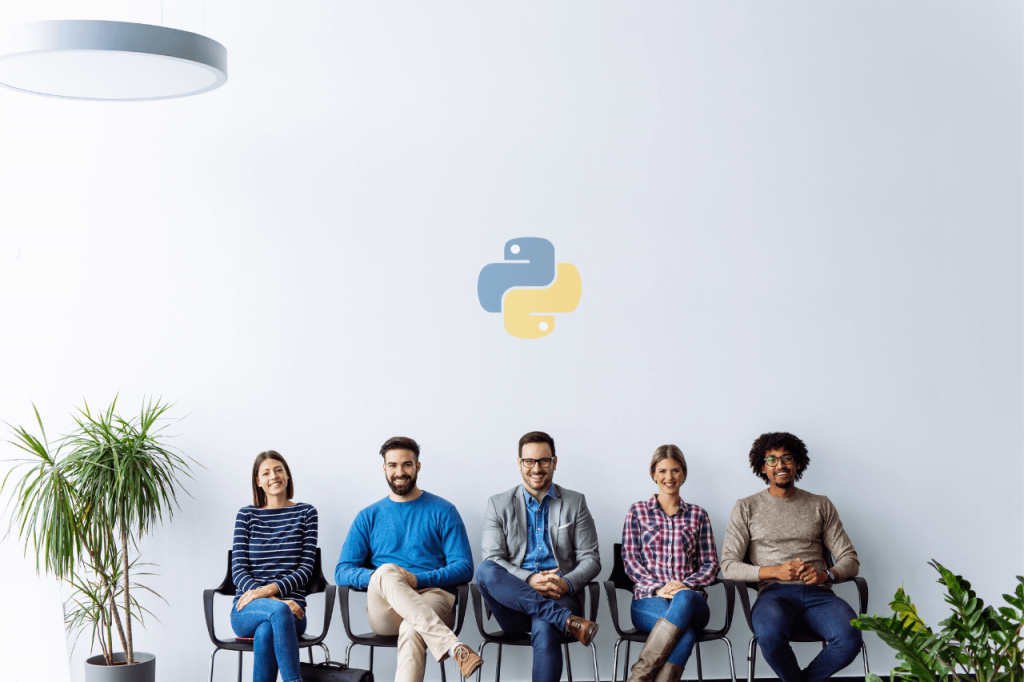To help you succeed in data analysis interviews, we have compiled a list of 8 common Python interview questions that you should be familiar with. Whether you’re a fresh graduate or an experienced professional, mastering these questions will boost your confidence and increase your chances of acing your next Python interview.
Preparing for a Python interview can be a nerve-wracking experience, especially when you want to stand out from the competition in the rapidly growing field of data analysis, data science, or Python full-stack development.
Python Interview Questions
You’re reading the article, 8 Common Python Interview Questions.
1. What is Python?
Python is a high-level, interpreted programming language known for its simplicity and readability. It is widely used in various domains, including web development, data analysis, artificial intelligence, and scientific computing. Its versatility and extensive libraries make it a popular choice among programmers.
2. What are the key features of Python?
Python boasts several key features that make it a preferred language for developers. These include:
- Easy-to-read syntax: Python uses indentation and English-like keywords, making it highly readable.
- Dynamic typing: Variables in Python are dynamically typed, allowing flexibility during programming.
- Extensive libraries: Python offers a vast collection of libraries and frameworks, such as NumPy, Pandas, and Django, for different purposes.
- Cross-platform compatibility: Python code can be run on various operating systems, including Windows, macOS, and Linux.
You’re reading the article, 8 Common Python Interview Questions.
3. What are the differences between Python 2 and Python 3?
Python 2 and Python 3 are two major versions of the language, with Python 2 being widely used before the transition to Python 3. Some key differences between the two versions include:
- Print statement: In Python 2, the print statement is used without parentheses, while in Python 3, it requires parentheses.
- Unicode support: Python 3 natively supports Unicode, while Python 2 requires additional encoding/decoding.
- Division operator: Python 2 performs integer division by default, while Python 3 uses float division.
- Syntax differences: Python 3 introduces several syntax changes and improvements over Python 2.
4. What are decorators in Python?
Decorators are a powerful feature in Python that allows you to modify the behavior of functions or classes without changing their source code. They provide a convenient way to add functionality to existing functions or classes. Decorators are commonly used for tasks like logging, authorization, and performance monitoring.
You’re reading the article, 8 Common Python Interview Questions.
5. What is the difference between a list and a tuple in Python?
In Python, both lists and tuples are used to store collections of items, but they have some differences:
- Mutability: Lists are mutable, meaning their elements can be modified, added, or removed. Tuples, on the other hand, are immutable and cannot be changed once created.
- Syntax: Lists are defined using square brackets [], while tuples use parentheses ().
- Usage: Lists are used for collections that may need to be modified, while tuples are often used for fixed collections that should not change.
6. Explain the concept of a virtual environment in Python.
A virtual environment is a tool that allows you to create isolated Python environments for different projects. It helps in managing dependencies and avoids conflicts between different project requirements. By creating separate virtual environments, you can install specific versions of packages without affecting other projects.
You’re reading the article, 8 Common Python Interview Questions.
7. How do you handle exceptions in Python?
Exception handling is crucial in Python to gracefully handle errors and prevent program crashes. The try-except block is used to catch and handle exceptions. The code within the try block is executed, and if an exception occurs, it is caught by the appropriate except block, allowing you to handle the exception and continue the execution of the program.
8. What is the difference between a shallow copy and a deep copy in Python?
In Python, the concepts of shallow copy and deep copy are used when creating copies of objects or data structures. The main difference between the two lies in how they handle nested objects or references within the original object being copied.
If you want to succeed in your next data analysis interview, these Python interview questions can be your key to cracking the interview.
Hope you liked reading the article, 8 Common Python Interview Questions. Please share your thoughts in the comments section below.
Follow our social media pages: Facebook, Instagram, LinkedIn

